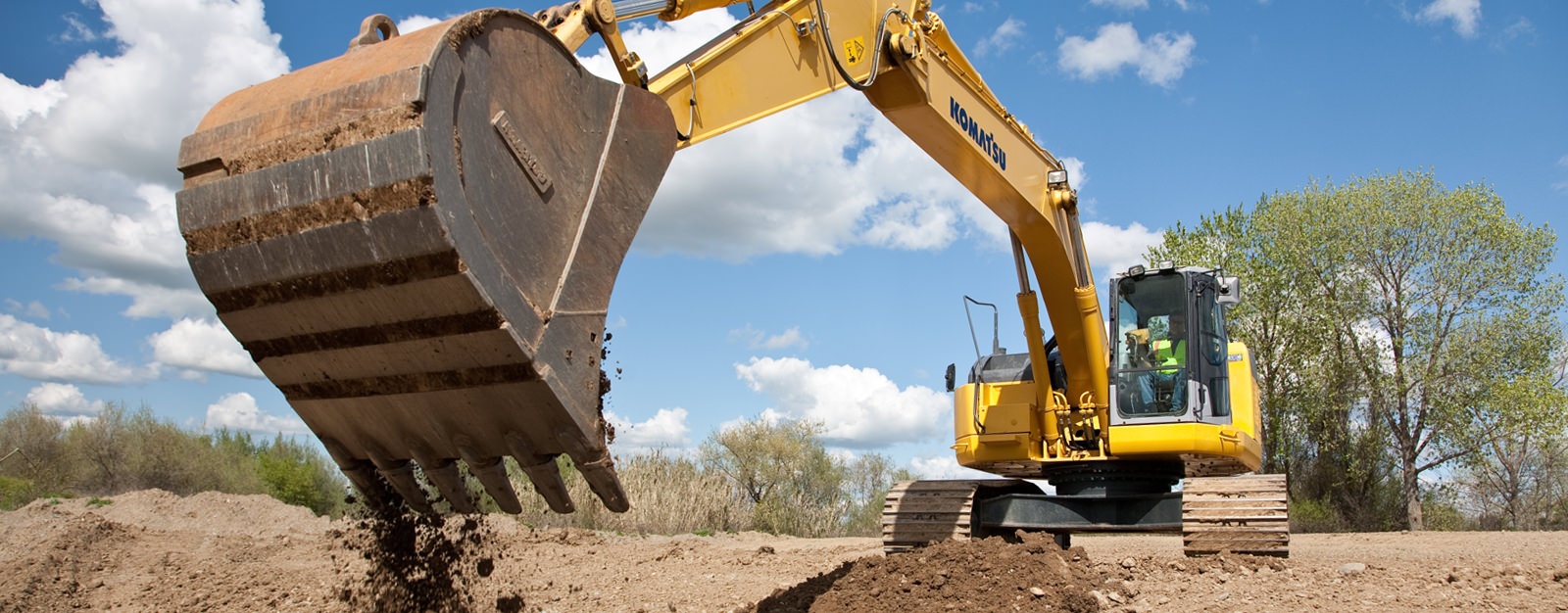Dump Truck Companies in Ohio - Reliable Dump Truck Services Across Ohio
Dump Truck Companies in Ohio - Reliable Dump Truck Services Across Ohio
Blog Article
Comprehensive Excavation Techniques: Understanding the Fundamentals for Success
The careful preparation, specific implementation, and thorough focus to information called for in excavation tasks require a thorough approach that encompasses various fundamental elements. The real mastery lies not simply in comprehending these basics but in perfectly integrating them to navigate the complexities of excavation tasks with finesse.
Comprehending Excavation Job Planning

Successful excavation projects are improved the foundation of thorough and complete planning. The first phase of any type of excavation project is the preparation phase, where vital choices are made that can dramatically influence the result of the project. Throughout this stage, it is necessary to gather all pertinent info concerning the website, including topographical studies, dirt structure, and any kind of prospective dangers that might exist. Recognizing the project range, spending plan, and timeline restrictions is critical for creating a comprehensive excavation strategy that makes certain the job's success.
One secret element of excavation job planning is the growth of an in-depth timeline that details the series of target dates, tasks, and landmarks. This timeline works as a roadmap for the task team, permitting them to track progression and make essential modifications to make sure the task remains on schedule. Additionally, a well-defined spending plan that represents all expenses, consisting of devices leasing, labor costs, and products, is important for preventing expense overruns and delays. By carefully considering all these variables throughout the drawing board, excavation tasks can be implemented effectively and efficiently, leading to successful outcomes.
Dirt Analysis and Website Assessment
Conducting extensive dirt analysis and site evaluation is an essential action in the preparation stage of any excavation task. Soil evaluation entails determining the composition, structure, and properties of the soil at the excavation site. This info is critical for understanding the soil's bearing capability, moisture content, and potential for erosion, which are essential consider determining the excavation methods and equipment needed for the project.
Site examination goes past dirt evaluation and incorporates a wider assessment of the overall site problems. This evaluation includes recognizing any kind of potential hazards, such as below ground energies, ecological problems, or unstable terrain, that could influence the excavation procedure. By completely examining the website, task managers can develop efficient excavation approaches that focus on safety and security, effectiveness, and ecological security.
Utilizing advanced technologies like ground-penetrating radar, dirt tasting, and drone surveys can enhance the accuracy and efficiency of dirt analysis and website analysis. Investing time and resources in these preliminary actions can eventually conserve time and protect against costly delays or difficulties throughout the excavation procedure.
Tools Choice and Usage
Efficient excavation projects rely heavily on critical devices selection and utilization to make sure ideal performance and performance. Picking the ideal devices for the job is important in optimizing effectiveness and minimizing downtime. Aspects such as the sort of dirt, depth of excavation, and project scope play a substantial duty in determining one of the most suitable tools for the task at hand.

Along with picking the appropriate devices, correct utilization is essential to task success. Operators must be trained to take care of the tools securely and successfully - lancaster trenching. Routine upkeep checks and prompt repair services assist avoid failures and make certain regular efficiency throughout the job
Precaution and Laws Compliance
In the world of excavation tasks, focusing on precaution and compliance with regulations is extremely important to making certain a legally audio and safe and secure functional setting. Precaution encompass a series of techniques, including conducting comprehensive website evaluations, carrying out appropriate signs and barriers, and giving adequate safety training for all personnel involved in the excavation process. Adherence to laws, such as OSHA demands in the United States, ensures that the excavation project fulfills the essential standards to shield workers, spectators, and the surrounding atmosphere.

Tracking Progress and Adjusting Strategies
How can project managers efficiently track the improvement of excavation projects and adjust their techniques appropriately to optimize end results? Surveillance progression is necessary for guaranteeing that excavation jobs remain on track and satisfy due dates. Project supervisors can make use of different devices and methods to track progress, such as day-to-day development records, routine site evaluations, and progressed monitoring modern technologies like drones and GPS tracking systems. By continually keeping track of the task's development, supervisors can determine any possible delays or issues early on and take proactive actions to address them.

Final Thought
To conclude, mastering the fundamentals of thorough excavation methods is vital for the success of any type of project. By recognizing task preparation, examining dirt and site conditions, picking proper devices, following safety laws, and checking progression, project supervisors can guarantee a effective and smooth excavation process. Applying these approaches will lead to effective end results and minimize prospective dangers or troubles during the excavation job.
The first phase of any type of excavation task is the planning browse around this web-site stage, where crucial choices are made that can significantly impact the outcome of the job. Comprehending the project timeline, spending plan, and extent restrictions is important for creating a detailed excavation plan that makes sure the job's success.
How can predict supervisors effectively track the innovation of excavation jobs and adapt their techniques as necessary to optimize results? By carefully checking development and being willing to adapt methods, job managers can boost the overall success of excavation jobs.
By comprehending task preparation, assessing dirt and website problems, picking ideal tools, abiding with safety and security laws, and checking progression, task supervisors can make sure Get the facts a effective and smooth excavation procedure.
Report this page